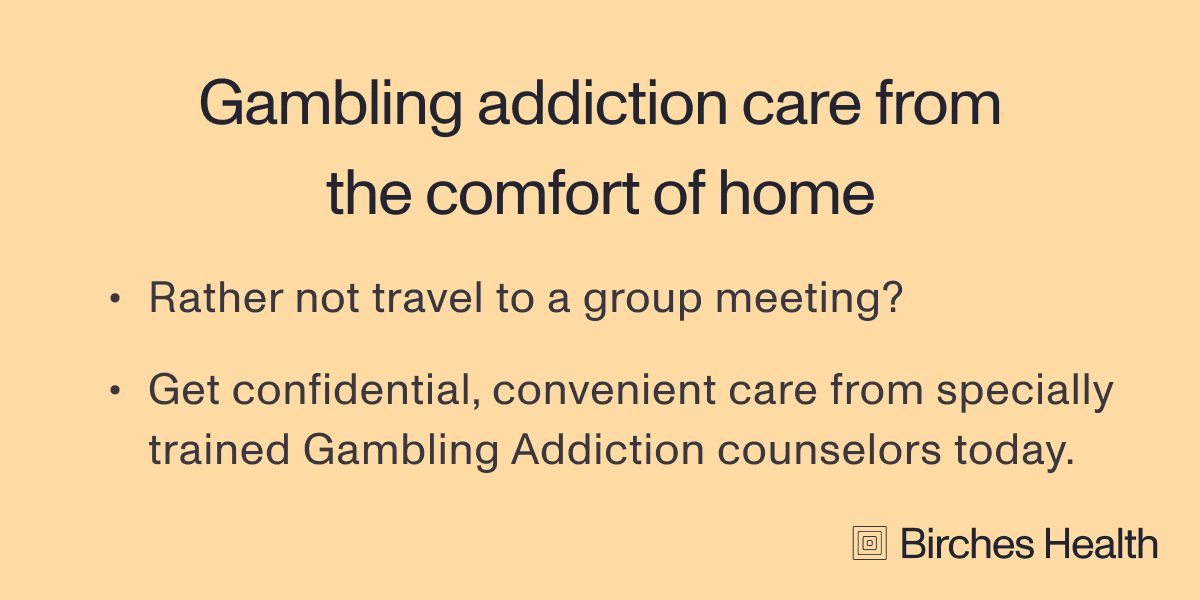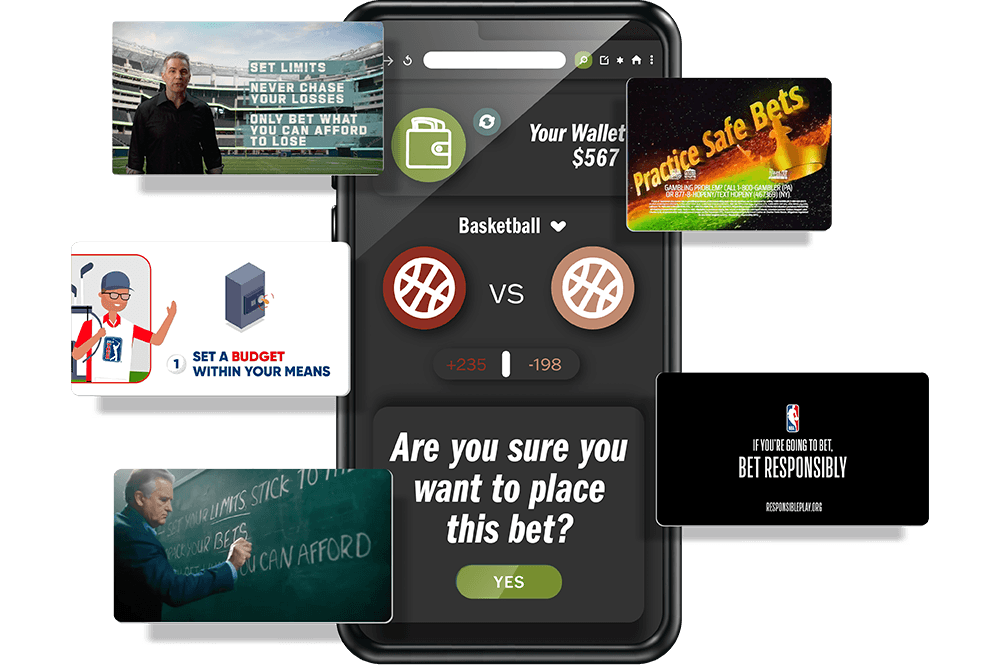New Year's Resolution to Stop Gambling? How to Quit Betting
Published:
Dec 27, 2024
,
02:01 p.m.
ET

KEY POINTS:
Create a system of accountability
Use technology to add hurdles and blockers between you and betting
Find productive activities to replace the time you've spent gambling
Explore specialized support options that can help you stop betting
When a new year arrives, many people use it as an opportunity to set goals for themselves in the form of New Year's resolutions. There are a lot of positive changes someone can decide to instill in the upcoming year, and it is important to evaluate what may be causing the outcomes that you want to change.
If you feel that your gambling or sports betting habits have started to negatively impact your life, finances or mental health, it may be time to formulate a plan for stopping. A New Year’s resolution to quit betting may be exactly what’s needed in your life, and making sure you’re setting up for success with that goal is key. So let’s dive into specifics of what’s worked for others who have been in similar situations.
Tips for how to stop gambling in the new year
There are helpful tips that can be used to reduce your gambling habits as you work towards stopping for good. It is important to have tactics that you can use when the urge to gamble arises and a long-term plan to help you stop gambling altogether.
Use Gambling App Blockers: It can be very tempting to go on your phone and pull up one of the many betting apps that make it effortless to mindlessly place bets. Using gambling app blockers specifically made for blocking access can help reduce the urge to gamble by making it more difficult. Some popular gambling blockers include BetBlocker, Gamban and Gamblock. Additionally, adding yourself to a “self-exclusion” list will prevent sports betting apps from allowing you to keep betting.
Limit Ease of Access to Betting Funds: Money in your checking or betting account can oftentimes be the simplest trigger. Easy access to funds can feel like an opportunity to chase that next big win. Our own Rob Minnick, a recovered gambling addict, set up systems that made it inconvenient to gamble. Whether you’d prefer to share visibility of your finances to a trusted family member or friend, or limit access to credit and debit cards, these types of steps can increase accountability and add another hurdle between you and your potential betting funds.
Fill Your Time with Other Activities: When you’re no longer spending all of your time gambling, obsessing over wins and losses or researching the best ways to try to beat the odds, you may find you have spare time to fill. Boredom can be a trigger, so finding new activities, hobbies and productive ways to spend time is important. Some, like exercise, can even create endorphins that act as a replacement for the “high” that gambling once provided.
Build a Support System: Compulsive gambling is not easy to overcome on your own, and trying to do so without any external help can make it feel even harder. There are a lot of resources for those looking to stop betting. You can enlist the help of trusted friends or family who are supportive of your goal to quit gambling. Additionally, Birches Health offers individualized counseling, free virtual group meetings and peer support.

Resources and specialized support options available
If you or someone you know is looking to quit gambling for good, there are resources that specialize in gambling addiction treatment. The level of support needed to stop gambling will depend on the individual and different levels of treatment offer unique benefits. Support options may include:
Individual Virtual Telehealth treatment
Individual In-Person counseling
Group support
Inpatient facilities
Comprehensive treatment for problematic gambling habits may include more than one type of treatment and can change over time depending on where someone is in their recovery process. Birches Health is a care option that specializes in the treatment of gambling addiction and other behavioral health diagnoses. Birches has multiple ways to start treatment:
Free Gambling Addiction Assessment: Birches Health has a free, quick self-assessment to help determine if your gambling habits may be problematic.
Seek Professional Support: Birches Health offers 100% remote specialized gambling addiction treatment. Services include:
1-on-1 counseling sessions
Free virtual group support meetings
Workshops and webinars for gambling recovery
Relapse prevention planning
Educational resources
Peer support options
Reach Out to Birches Health
Call 833-483-3838
Email hello@bircheshealth.com

Understanding the Gambling Addiction recovery process
Gambling addiction recovery is a multilayered and continuous process. A medical or mental health professional will evaluate for a possible gambling addiction by asking questions about your habits, reviewing medical information and assessing any other mental health conditions that may be present.
After the evaluation, a custom treatment plan will be formed that may include varying steps. Treatment for gambling addiction may involve inpatient or outpatient treatment, individual or group therapies, support groups or medication. Many treatment plans may include more than one form of support, as someone's needs may change during their recovery process. After more formal treatment, aftercare should be set up including relapse prevention. Relapse prevention will include tactics to help prevent someone from falling back into negative gambling behaviors and a plan to continue recovery if they do.
Building healthier, more responsible gambling habits
If you’re not yet at the point of wanting or needing to stop betting fully, but want to take steps to help ensure that you do it in a healthier manner, there are many Responsible Gaming tips to guide you.
One of the most common at-risk behaviors that Birches Health clinicians see in patients is “chasing losses,” which is when someone bets more, usually higher amounts or more individual wagers, in hopes of winning back money that was lost. This can lead to a dangerous cycle of compounding losses at unexpected levels.
To help avoid chasing losses, you should set a betting budget, similar to an entertainment budget, that does not negatively impact your overall finances if the full amount is lost. This helps gambling be viewed as a form of entertainment rather than a potentially profitable activity.
And if you continue to bet, it’s best to do so with a plan that will help prevent you from falling into negative gambling patterns. You can also ask a friend to help keep you accountable to your plan. You can also set a time limit for how long you’ll gamble, take breaks between games, avoid betting while under the influence of alcohol or drugs, and stick to games/bets that you know how to play.
For setting limits, many bettors don’t realize that gambling apps nowadays usually have features within that can help users keep their betting in check. These include deposit limits, wager account limits, loss limits and time limits. They also have the option of taking a “time out” from betting, so that you are blocked from placing any more bets for a time period of your choosing.



